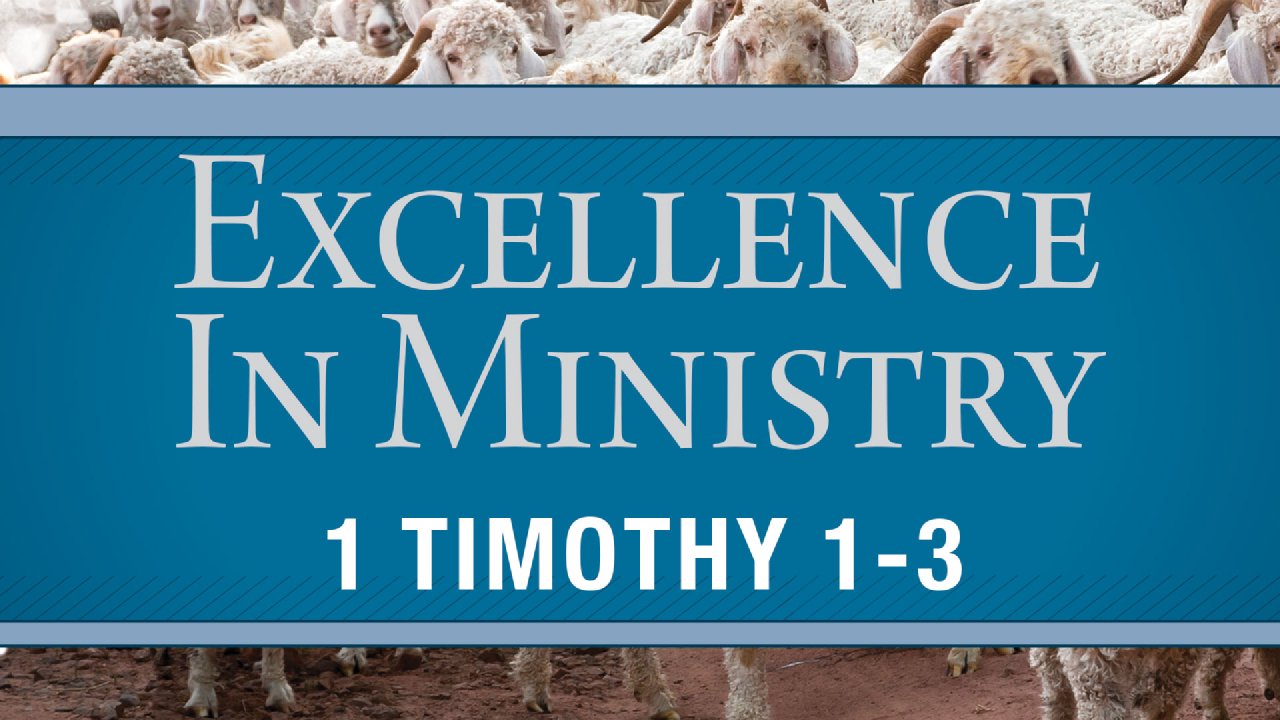God doesn't always spell out things in stark, “thou shalt” terms. He did in the Ten Commandments (Exodus 20:1-17; Deuteronomy 5:6-21), but most of God's Word is filled with stories, prophecies, proverbs, psalms, and biographies. When we get to the epistle of 1 Timothy, however, we discover virtually a whole chapter devoted to a black-and-white list requiring little interpretation but a lot of application. In 1 Timothy 3:1-7, Paul put his finger on the essential qualities God looks for in overseers—qualities as applicable for church leaders in the twenty-first century as they were in the first century. We'll look at the first two verses in this lesson and the last five in the next message.

Checklist for Choosing Church Leaders
Message 7
Pastor Chuck Swindoll • 1 Timothy 3:1–7
The Church as God Planned It
Pastor Chuck Swindoll
Shortly before his death, Paul wrote three letters on the subject of the local church—specifically on pastoral responsibilities within the church. These letters are 1 Timothy (written in AD 63), Titus (AD 63), and 2 Timothy (AD 67). The Pastoral Epistles, as they are commonly called, provide believers with the earliest and most reliable guidelines for the local church. They dictate the way issues in the church should be handled, the philosophy that should be embraced within the church, and the manner in which the church should be led. Over the centuries, human tradition has often outshouted biblical principles and caused the church to get off course, which has resulted in every conceivable extreme in teaching and in doctrine, including heresy. In this expositional study of 1 Timothy, we return to the source—the Bible—and discover afresh how God planned the church to function.
What's a Pastor to Do?
Pastor Chuck Swindoll
First Timothy, the flagship of Paul's “pastoral” letters, defines the role of the pastor and the function of the church. Our goal is to learn from this first-century epistle about some of the concerns and pitfalls of ministry and apply God's instructions to the twenty-first-century church. This study offers insight on the theology of ministry based on biblical guidelines—as opposed to human experience, opinion, prejudice, culture, or personal preference. Let's keep a keen eye on what is written in God's Word and then do our best to let it shape our thinking.
Undeserved Mercy for an Unbelieving Rabbi
Pastor Chuck Swindoll • 1 Timothy 1:12–17
One of the benefits of studying a New Testament letter is the opportunity to become better acquainted with the writer himself—in this case, Paul the apostle. In this brief vignette (a mere six verses), we don't read of Paul's role and ministry as an apostle—strong in faith and unswerving in dedication. Rather, we read of Paul—called Saul—before his conversion to Christ. Saul was “a blasphemer and a persecutor and a violent aggressor” who, by his own admission, “acted ignorantly in unbelief ” (1 Timothy 1:13). Ironically, Saul was a religious zealot, an intense rabbi, sincere to the core . . . but sincerely wrong. And so? Mercy came to the rescue!




